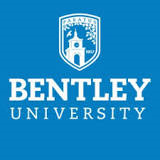What do they do?
Examine budget estimates for completeness, accuracy, and conformance with procedures and regulations. Analyze budgeting and accounting reports.
Also known as:
Budget Analyst, Budget Coordinator, Budget Officer, Financial Services Officer, Policy Analyst
-
4%
Change
Ranks #39 in job growth rate80Job Openings
Ranks #23 in net job growth
-
University of Pennsylvania
Philadelphia, PA
-
University of Notre Dame
Notre Dame, IN
-
Boston College
Chestnut Hill, MA
-
Villanova University
Villanova, PA
-
Bentley University
Waltham, MA
Looking for colleges that offer a specific major? Use the College Match Tool to find your best-matched schools and discover your estimated Net Price!
- Doctorate or Professional Degree (2%)
- Master's degree (31%)
- Bachelor's degree (42%)
- Associate's degree (7%)
- Some college, no degree (12%)
- High school diploma equivalent (6%)
- Less than high school diploma (<1%)
Most Popular Majors that prepare Budget Analysts
-
#1
-
Degrees Granted
43,472
-
Female Students
22,586
-
Male Students
20,886
-
Median Starting Salary
$46,700
-
-
#2
-
Degrees Granted
42,516
-
Female Students
12,188
-
Male Students
30,328
-
Median Starting Salary
$39,100
-
-
#3
-
Degrees Granted
805
-
Female Students
338
-
Male Students
467
-
Median Starting Salary
$52,800
-
-
#4
-
Degrees Granted
17
-
Female Students
6
-
Male Students
11
-
Median Starting Salary
$39,100
-
People in this career often have these skills:
- Active Listening - Giving full attention to what other people are saying, taking time to understand the points being made, asking questions as appropriate, and not interrupting at inappropriate times.
- Reading Comprehension - Understanding written sentences and paragraphs in work-related documents.
- Speaking - Talking to others to convey information effectively.
- Mathematics - Using mathematics to solve problems.
- Critical Thinking - Using logic and reasoning to identify the strengths and weaknesses of alternative solutions, conclusions, or approaches to problems.
- Complex Problem Solving - Identifying complex problems and reviewing related information to develop and evaluate options and implement solutions.
- Judgment and Decision Making - Considering the relative costs and benefits of potential actions to choose the most appropriate one.
People in this career often know a lot about:
- Economics and Accounting - Knowledge of economic and accounting principles and practices, the financial markets, banking, and the analysis and reporting of financial data.
- Mathematics - Knowledge of arithmetic, algebra, geometry, calculus, statistics, and their applications.
- English Language - Knowledge of the structure and content of the English language including the meaning and spelling of words, rules of composition, and grammar.
- Administration and Management - Knowledge of business and management principles involved in strategic planning, resource allocation, human resources modeling, leadership technique, production methods, and coordination of people and resources.
- Administrative - Knowledge of administrative and office procedures and systems such as word processing, managing files and records, stenography and transcription, designing forms, and workplace terminology.
- Law and Government - Knowledge of laws, legal codes, court procedures, precedents, government regulations, executive orders, agency rules, and the democratic political process.
- Customer and Personal Service - Knowledge of principles and processes for providing customer and personal services. This includes customer needs assessment, meeting quality standards for services, and evaluation of customer satisfaction.
People in this career often have talent in:
- Oral Comprehension - The ability to listen to and understand information and ideas presented through spoken words and sentences.
- Written Comprehension - The ability to read and understand information and ideas presented in writing.
- Mathematical Reasoning - The ability to choose the right mathematical methods or formulas to solve a problem.
- Number Facility - The ability to add, subtract, multiply, or divide quickly and correctly.
- Written Expression - The ability to communicate information and ideas in writing so others will understand.
- Deductive Reasoning - The ability to apply general rules to specific problems to produce answers that make sense.
- Inductive Reasoning - The ability to combine pieces of information to form general rules or conclusions (includes finding a relationship among seemingly unrelated events).
- Oral Expression - The ability to communicate information and ideas in speaking so others will understand.
- Problem Sensitivity - The ability to tell when something is wrong or is likely to go wrong. It does not involve solving the problem, only recognizing that there is a problem.
- Information Ordering - The ability to arrange things or actions in a certain order or pattern according to a specific rule or set of rules (e.g., patterns of numbers, letters, words, pictures, mathematical operations).
- Speech Clarity - The ability to speak clearly so others can understand you.
- Near Vision - The ability to see details at close range (within a few feet of the observer).
- Speech Recognition - The ability to identify and understand the speech of another person.
People in this career often do these activities:
- Prepare financial documents, reports, or budgets.
- Advise others on financial matters.
- Analyze budgetary or accounting data.
- Verify accuracy of financial information.
- Gather financial records.
- Establish organizational guidelines or policies.
- Analyze business or financial data.
- Discuss business strategies, practices, or policies with managers.
- Identify opportunities to improve operational efficiency.
- Testify at legal or legislative proceedings.
This page includes data from:

 Occupation statistics: USDOL U.S. Bureau of Labor Statistics Occupational Employment Statistics
Occupation statistics: USDOL U.S. Bureau of Labor Statistics Occupational Employment Statistics
 Videos: CareerOneStop, USDOL/ETA and the Minnesota Department of Employment & Economic Development
Videos: CareerOneStop, USDOL/ETA and the Minnesota Department of Employment & Economic Development









